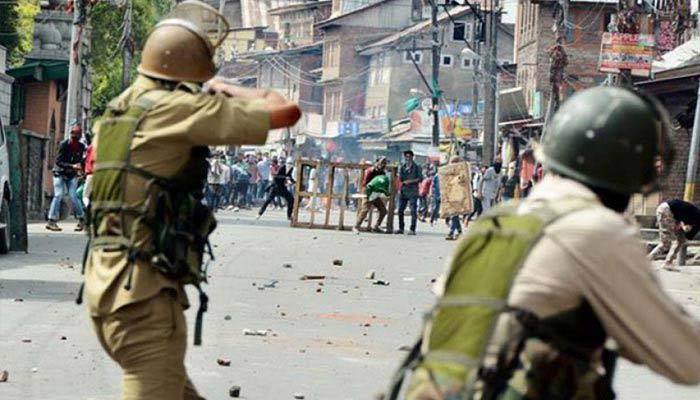Indian Military lockdown of Occupied Kashmir turned valley into the most dreadful place in the world: Report
Shares

SRINAGAR - In occupied Kashmir, five-month long military clampdown and internet suspension have added to the already traumatized people of Kashmir as the number of patients with various psychiatric ailments has increased manifold since 5th of August.
An earlier study carried out by French-based Doctors Without Borders, and Srinagar’s Institute of Mental Health and Neurosciences says that every one out of five people in Kashmir have symptoms of post-traumatic stress disorder.
Meanwhile, an atmosphere of fear and uncertainty continues to haunt the Kashmir Valley and Muslim majority areas of Jammu and Ladakh regions on the 142nd day of military siege and lockdown, today.
Indian forces are deployed in bulk while restrictions are in place under Section 144 to prevent protests against India’s illegal actions taken in the aftermath of August 5. Eight youth also arrested by Indian police during raids in Baramulla and Shopian districts.
Hurriyat leaders and activists during a meeting expressed condolences over the death of Awami Action Committee’s women wing chief, Fatima Begum in Srinagar. They expressed resentment over India’s decision not to allow Mirwaiz Umar Farooq to participate in her funeral prayers.
In New York, Global Rights Watchdog, the Human Rights Watch, has asked the Indian authorities to cease the use of unnecessary lethal force against demonstrators protesting a law that discriminates against Muslims.
The Human Rights Watch in a statement posted on its website, today, urged the Indian government to revoke the controversial Citizenship Amendment Act, which violates India’s international obligations to prevent deprivation of citizenship on the basis of race, color, descent and ethnicity.
It said 25 people have been killed and hundreds arrested since protests began against the controversial law.
